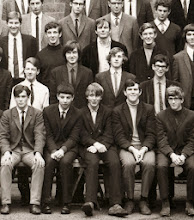
Anyway, here are some more books on Fine Northern Women, which I have enjoyed and which also contributed to my assertion that the region is indeed, in the words of the subtitle, England's better half.
I don't think Daughter of the Dales needs much introduction, nor its author, (with TV producer Barry Cockcroft), Hannah Hauxwell. She is what people oddly call a 'natural.' I shared a platform with her once in Hawes and my children, who were there, have had a mantra ever since, imitating her soft North Yorkshire voice excellently as they say: "I love me house, and I love me farm, and I love me sheep, and I love me..." (Arrow 1991 - and there are assorted other titles including Seasons of My Life also 1991).
Anything by Winifred Holtby or Storm Jameson is good, and you can read some good introductory material on both, and a host of other Northern writers, in Marion Troughton's Pens, Profiles and Places (Smith Settle 1989). I specially like Holtby's epitaph in the church at Rudston: 'Give me work till my life shall end, And life till my work is done.' Rudston also has an extraordinary standing stone and a stained glass window to the romantic-sounding Lord of the Isles, who deserted Scotland for this pleasant part of the East Riding.

Not far up the coast is Whitby Abbey, famously ruled in the 7th century AD by St Hilda. My late aunt Anne Warin wrote an enjoyable account of her life, Hilda, an Anglo-Saxon Chronicle (Lamp Press 1989). She was a tough negotiator, and that talent was shared by the heroines of a whole stack of books about the struggles of women workers.
 Here's an instructive trio from Yorkshire Arts Circus, those marvellous micro-publishers from Castleford: Bad Reputation, Yorkshire Women, Politics and Power, Ed Tina Kendall 1994 (how women suffer when they step out of line, but how they boldly go on doing so); A Woman's Right to Cues by Sheila Capstick, 1988, in which the villasin, rightly are Yorkshire working men's clubs and their belief in men-only snooker;
Here's an instructive trio from Yorkshire Arts Circus, those marvellous micro-publishers from Castleford: Bad Reputation, Yorkshire Women, Politics and Power, Ed Tina Kendall 1994 (how women suffer when they step out of line, but how they boldly go on doing so); A Woman's Right to Cues by Sheila Capstick, 1988, in which the villasin, rightly are Yorkshire working men's clubs and their belief in men-only snooker;  and Our Bitter Harvest, 1993, by the women mushroom-pickers of Whitley Bridge, who went on strike for almost a year to end a life which, as they saw it, resembled the old saying about mushrooms: live in the dark, fed on dung.
and Our Bitter Harvest, 1993, by the women mushroom-pickers of Whitley Bridge, who went on strike for almost a year to end a life which, as they saw it, resembled the old saying about mushrooms: live in the dark, fed on dung.A final excellent analysis of the harsh conditions and strength-in-unity of a trade
 dominated by women - homeworking - is to be found in A Penny A Bag - Campaigning on Homework, published by the West Yorkshire Homeworking Group in 1990.
dominated by women - homeworking - is to be found in A Penny A Bag - Campaigning on Homework, published by the West Yorkshire Homeworking Group in 1990.

No comments:
Post a Comment